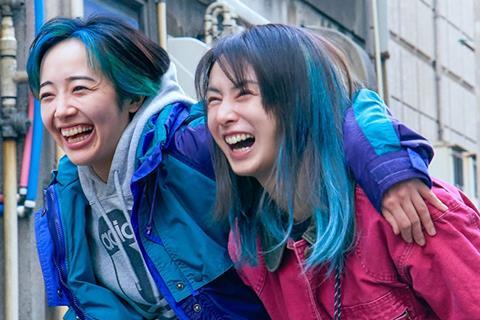Uchida’s latest feature premieres at Tokyo film festival before opening in Japan at the end of November

Dir/scr: Eiji Uchida. Japan. 2025. 124mins
Flat broke and working multiple jobs she hates to support her two children, an Osaka woman in Tokyo takes drastic measures to make ends meet with predictably disastrous results in Brazilian-born Eiji Uchida’s bleak Night Flower. Uchida’s latest drama trades in the grim – some may say excessively so – but nevertheless finds moments of joy and grace amid the misery.
Centres a functioning found family that’s recognisable and resonant
The film, which premieres in Tokyo, sees Uchida continuing his examination of life in Japan’s margins that has previously informed works like his 2017 breakout Love And Other Cults, 2019 Netflix series The Naked Director and 2021 Japan Academy Film prizewinner Midnight Swan. Uchida’s established traction with indie distributors and festivals should generate attention, and the presence of J-pop and J-rock stars Daisuke Sakuma and Ryuta Shibuya could help secure interest in Asia – the film opens in Japan on November 28 through Shochiku – and beyond.
Smothered by the weight of her missing ex-husband’s gambling debts and on a deadline to pay the loan sharks he owes, Natsuki (Keiko Kitagawa, Stolen Identity) thinks she has discovered a sure-fire way to earn a lot of money, fast. Heading home after one of her three jobs, this one as a nightclub hostess, she watches a drug dealer get into a fight with some rivals – but not until after he collected 50,000 yen for a few pills. She swipes what he had left but, when she tries to peddle what turns out to be MDMA a few days later, she immediately runs afoul of the local drug baron, Ms Sato (Super Beaver singer Shibuya).
Elsewhere, Tamae (Misato Morita, returning from Uchida’s Naked Director) is an amateur kickboxer looking to turn pro. Tamae is small and jaded, toughened up by a mysterious background and supported in her ambitions by her oldest friend, Kai (Sakuma of J-pop boyband Snow Man). The two women connect when Tamae offers up enforcer services for Natsuki while she deals on street corners. The cash starts rolling in for both, Tamae scores a major fight and things seem to be looking up.
Natsuki’s drug dealing and Tamae’s boxing (Morita reportedly spent six months training intensively for the role) are just the plot machinations that writer-director Uchida deploys to examine the desperate, misguided choices of people barely existing on the margins of Japanese society, and their consequences. Hints that disaster is on the horizon are laced throughout the story: the owner of the gym Tamae attends has a gambling problem; one of their regular clients is the neglected child of a wealthy couple; a private investigator is sniffing around the neighbourhood. But they don’t come into stark relief until the closing frames, when Uchida steps into low-key thriller territory and neatly ties up all the loose threads.
The natural, sweet – but not saccharine – bond between Kitagawa and Morita is the film’s real story. As he did in Midnight Swan, Uchida centres a functioning found family that’s recognisable and resonant. Hiroki Yamada’s handheld camerawork brings urgency and intimacy to the mundane and ultra-emotional in equal measure, be it Natsuki’s numbing work building desk globes or Tamae’s drubbing of unworthy opponents in minor matches.
Crucially, Uchida knows when stillness is the wiser choice, and some of Night Flower’s most impactful sequences are the ones that show and don’t tell. When Natsuki stumbles upon her talented violinist daughter Koharu busking on the street it’s a truly heartbreaking moments and it intensifies our understanding of the actions Natsuki is taking, regardless of the inevitable catastrophe it will bring.
Production companies: Kansai Television
International sales: Nikkatsu, international@nikkatsu.co.jp
Producers: Chiaki Kusu, Kotaro Nagatomi, Madoka Katsumata
Cinematography: Hiroki Yamada
Production design: Rie Sasaki
Editor: Masashi Komino
Music: Yohei Kobayashi
Main cast: Keiko Kitagawa, Misato Morita, Daisuke Sakuma, Ryuta Shibuya, Kiyohiko Shibukawa, Hiroyuki Ikeuchi, Rena Tanaka, Ken Mitsuishi
























